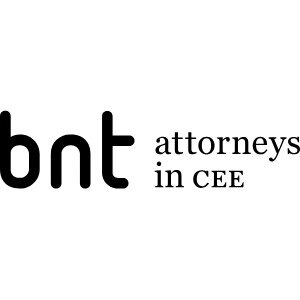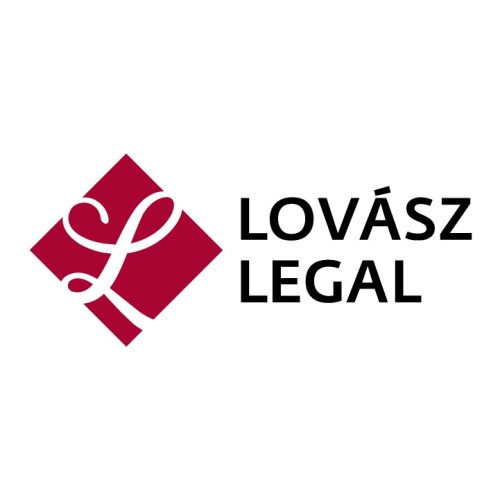Best Nonprofit & Charitable Organizations Lawyers in Slovakia
Share your needs with us, get contacted by law firms.
Free. Takes 2 min.
Or refine your search by selecting a city:
List of the best lawyers in Slovakia
About Nonprofit & Charitable Organizations Law in Slovakia
Nonprofit and charitable organizations in Slovakia form an essential part of the country's social landscape, aiming to address various societal needs and issues. The legal framework governing these organizations covers a diverse range of entities including civic associations, non-investment funds, nonprofit organizations providing services, and foundations. Each of these entities operates under specific regulations as outlined by Slovak law, focusing on their formation, operation, management, and dissolution. Understanding these regulations is crucial for anyone involved in nonprofit operations, whether for ensuring compliance or optimizing their organizational effectiveness.
Why You May Need a Lawyer
Engaging a lawyer can be beneficial for nonprofit and charitable organizations for several reasons. Often, legal assistance is necessary during the formation of the organization to ensure compliance with local laws and to appropriately handle registration procedures. Legal experts can also assist in drafting and reviewing contracts, ensuring that employment and volunteer agreements adhere to applicable laws. Additionally, nonprofits might require legal counsel to navigate taxation issues, manage relationships with donors, resolve disputes, and ensure compliance with transparency and reporting obligations. Moreover, significant organizational decisions like mergers or dissolution might necessitate expert legal advice.
Local Laws Overview
Slovak law provides a comprehensive framework for the establishment and operation of nonprofit organizations under several legal forms. Key aspects of these laws include:
- Registration: Civic associations and nonprofit organizations must be registered with the Ministry of Interior, while foundations are registered with the relevant regional court.
- Operational Guidelines: Nonprofits must operate with a clear purpose, maintain proper accounting records, and submit annual reports to the appropriate authorities.
- Taxation: Nonprofits may enjoy certain tax exemptions and benefits, though they must adhere to the tax laws applicable to them and ensure transparent financial reporting.
- Donations and Fundraising: Strict rules govern fundraising, with stipulations on transparency and accountability to prevent misuse of funds.
- Governance and Compliance: Nonprofits must have a defined governance structure with appropriate oversight mechanisms. Regular audits and compliance checks are mandated.
Frequently Asked Questions
What types of nonprofit entities exist in Slovakia?
The main types include civic associations, non-investment funds, foundations, nonprofit organizations providing services, and church-based charitable associations.
How do I start a nonprofit organization in Slovakia?
Starting involves choosing an organizational form, creating a founding document, and registering with the relevant governmental authority, like the Ministry of Interior or a regional court.
What are the tax benefits for nonprofit organizations?
Nonprofits may be eligible for certain tax exemptions, especially on income directly related to their core activities. VAT exemptions and deductions for donors may also apply.
Are there legal restrictions on the activities of nonprofits?
Yes, nonprofits must operate within the scope of their declared objectives. Activities must align with non-commercial goals, and they are prohibited from engaging in any profit-distributing acts.
What financial reporting is required for nonprofits?
Nonprofits must maintain accurate financial records and typically submit annual reports, including financial statements, to the appropriate authority.
Can nonprofits engage in commercial activities?
While primarily focused on their nonprofit mission, these organizations can engage in commercial activities as long as they support the primary purposes of the organization and adhere to any legal stipulations regarding profit use.
What is the role of governance in a nonprofit?
Governance structures ensure accountability, compliance, and effective management of a nonprofit’s resources. They typically involve a board of directors or supervisory board.
How can a nonprofit legally receive foreign donations?
Foreign donations are permissible, but they require transparency in transactions and adherence to anti-money laundering regulations.
How are conflicts within nonprofit organizations resolved?
Conflicts are typically managed internally through governance mechanisms, but legal counsel may be necessary for disputes that require mediation or arbitration.
What should I do if my nonprofit is facing legal issues?
Consulting with a lawyer who specializes in nonprofit law is advisable. They can offer guidance based on the specific circumstances and help navigate any legal challenges.
Additional Resources
For those seeking more information or assistance, the following resources can be helpful:
- Ministry of Interior of the Slovak Republic: Offers guidance on nonprofit registration and compliance.
- Slovak Nonprofit Organizations Centre (SNOC): Provides resources and support for establishing and managing nonprofit entities.
- Chambers of Commerce: While typically business-focused, they can also provide referrals and guidance about nonprofit compliance.
- Local Legal Aid Societies: Offer free or reduced-fee services for nonprofits in need of legal assistance.
Next Steps
If you need legal assistance related to nonprofit and charitable organizations in Slovakia, consider the following steps:
- Identify your Needs: Determine the specific legal issues or requirements you are facing.
- Research Lawyers: Look for legal professionals with expertise in nonprofit and charitable organization law in Slovakia.
- Consult with Experts: Arrange consultations to discuss your situation, inquire about their experience and approach, and explore potential solutions.
- Engage a Lawyer: Once you find a suitable lawyer, work with them to address your legal needs effectively and ensure ongoing compliance with local laws.
Lawzana helps you find the best lawyers and law firms in Slovakia through a curated and pre-screened list of qualified legal professionals. Our platform offers rankings and detailed profiles of attorneys and law firms, allowing you to compare based on practice areas, including Nonprofit & Charitable Organizations, experience, and client feedback.
Each profile includes a description of the firm's areas of practice, client reviews, team members and partners, year of establishment, spoken languages, office locations, contact information, social media presence, and any published articles or resources. Most firms on our platform speak English and are experienced in both local and international legal matters.
Get a quote from top-rated law firms in Slovakia — quickly, securely, and without unnecessary hassle.
Disclaimer:
The information provided on this page is for general informational purposes only and does not constitute legal advice. While we strive to ensure the accuracy and relevance of the content, legal information may change over time, and interpretations of the law can vary. You should always consult with a qualified legal professional for advice specific to your situation.
We disclaim all liability for actions taken or not taken based on the content of this page. If you believe any information is incorrect or outdated, please contact us, and we will review and update it where appropriate.
Browse nonprofit & charitable organizations law firms by city in Slovakia
Refine your search by selecting a city.

















